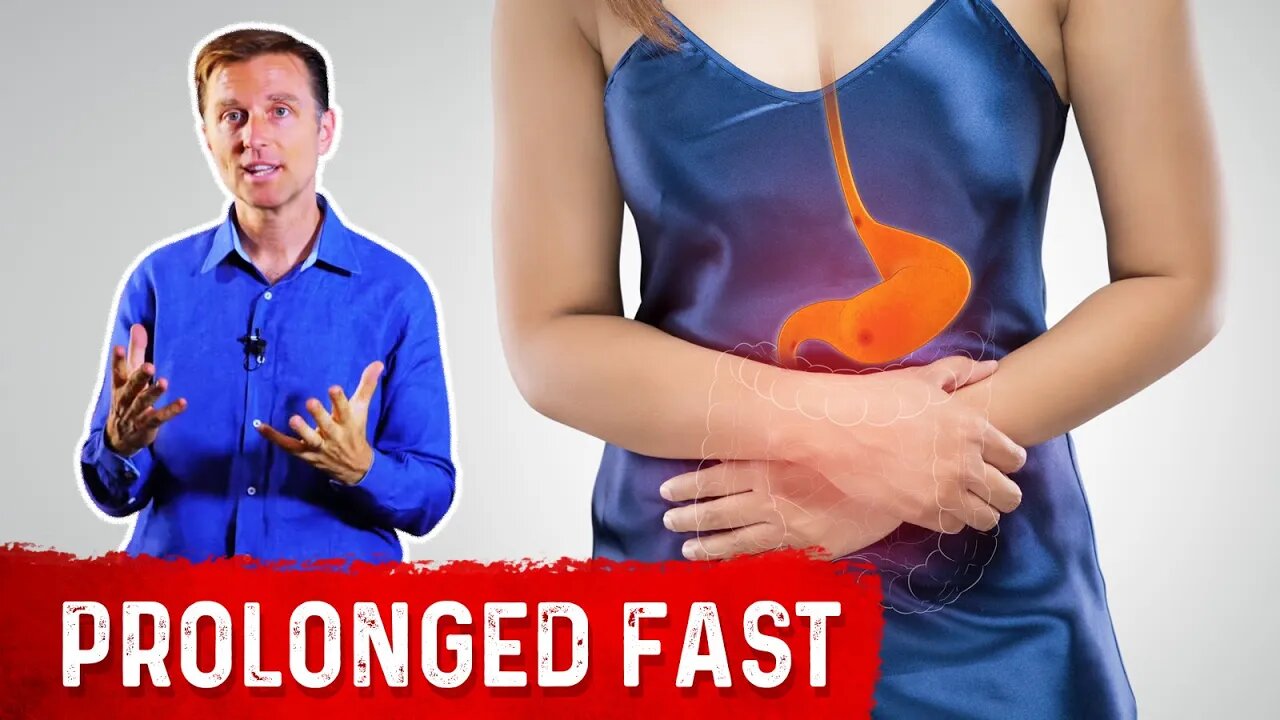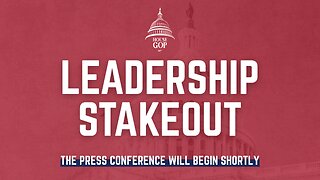Premium Only Content

Digestive Issues When Breaking a Fast?
Find out how to prevent digestive issues when breaking a fast.
Bile Salts Recommended:
🛒 https://drbrg.co/41p81Cm
GET DR. BERG'S LIQUID PROBIOTIC HERE :
🛒 https://drbrg.co/3EADVCp
Timestamps
0:00 Digestive issues when you break a fast
0:38 What to do after a prolonged fast
2:27 What to avoid after a long fast
2:37 What is refeeding syndrome?
4:10 Share your success story!
Let’s talk about why you might experience digestive problems when you break a long fast and how to help prevent these digestive problems.
Digestive issues you could experience after breaking a prolonged fast:
• Diarrhea
• Loose stool
• Gas
• Abdominal pain
• Bloating
• Nausea
This could happen because, basically, your digestive system has gone to sleep, and it hasn’t woken up yet. You don’t want to eat a large meal after a long fast because you will overload your system. You need to start small.
If you’ve done a fast for 48-72+ hours, the best thing to do would be to start with some cooked vegetables and broth. Then you would want to wait for two hours and then consume 3 oz. of protein that’s easy to digest, like fish, chicken, or an egg. You could also do a small amount of avocado.
After a long fast, you may also want to take certain things, such as:
• Apple cider vinegar (ACV) or betaine hydrochloride
• Bile salts
• Enzymes
• Probiotics
Foods to avoid after a long fast:
• Nuts and nut butters
• Red meat
• Raw cruciferous vegetables
• Dairy products
There is also a condition called refeeding syndrome, which is very rare. This could occur if you were deficient in certain electrolytes, then you did 1-2 weeks of fasting, and then you ate a refined carbohydrate or high sugar food.
This will spike insulin, which can cause electrolyte deficiencies in your blood. This can lead to feeling weak and confused and can even create a big strain on your heart about 3 hours later. You can avoid this problem by not having a high-carb meal and by taking certain electrolytes and nutrients during your fast.
Dr. Eric Berg DC Bio:
Dr. Berg, age 57, is a chiropractor who specializes in Healthy Ketosis & Intermittent Fasting. He is the author of the best-selling book The Healthy Keto Plan, and is the Director of Dr. Berg Nutritionals. He no longer practices, but focuses on health education through social media.
Official Website: https://www.drberg.com/
Follow Me On Social Media:
Facebook: https://bit.ly/FB-DrBerg
Instagram: https://bit.ly/IG-DrBerg
Anchor: https://bit.ly/Anchor-DrBerg
TikTok: https://bit.ly/TikTok-DrBerg
Send a Message to his team: https://m.me/DrEricBerg
Disclaimer:
Dr. Eric Berg received his Doctor of Chiropractic degree from Palmer College of Chiropractic in 1988. His use of “doctor” or “Dr.” in relation to himself solely refers to that degree. Dr. Berg is a licensed chiropractor in Virginia, California, and Louisiana, but he no longer practices chiropractic in any state and does not see patients so he can focus on educating people as a full time activity, yet he maintains an active license. This video is for general informational purposes only. It should not be used to self-diagnose and it is not a substitute for a medical exam, cure, treatment, diagnosis, and prescription or recommendation. It does not create a doctor-patient relationship between Dr. Berg and you. You should not make any change in your health regimen or diet before first consulting a physician and obtaining a medical exam, diagnosis, and recommendation. Always seek the advice of a physician or other qualified health provider with any questions you may have regarding a medical condition.
#keto #ketodiet #weightloss #ketolifestyle
Thanks for watching! I hope this helps you better understand how to prevent digestive issues when breaking a fast.
-
 15:02
15:02
Dr. Eric Berg
12 days agoThe Best Diet to Starve Cancer
6.23K30 -
 LIVE
LIVE
LFA TV
16 hours agoLIVE & BREAKING NEWS! | TUESDAY 10/28/25
2,416 watching -

The Mel K Show
2 hours agoMORNINGS WITH MEL K -Restoring National Sovereignty After Decades of Global Deception - 10-28-25
20.2K2 -
 LIVE
LIVE
The Shannon Joy Show
2 hours agoSJ Show 10/28 - Idiocracy 2025! Are Candace Owens & Nick Fuentes Government Agent Provocateurs? Because The Political Soap Opera Is Getting Kinda Stupid
767 watching -
 30:50
30:50
Grant Stinchfield
2 hours ago $0.01 earnedBillions for Nothing: New Study Reveals Widespread Fraud and Ghost Enrollments in Obamacare
14.2K4 -
 1:00:58
1:00:58
VINCE
5 hours agoBiden Is Back: "Democracy Is At Stake" (w/ Michael Knowles)| Episode 156 - 10/28/25
194K147 -
 LIVE
LIVE
Dr Disrespect
4 hours ago🔴LIVE - DR DISRESPECT - BATTLEFIELD 6 - REDSEC LAUNCH - BATTLE ROYALE
1,768 watching -
 1:27:53
1:27:53
Graham Allen
5 hours agoINSANE Libs Are Dressing As Dead Charlie For Halloween… + His Killer Getting Special Treatment??
129K58 -
 2:00:58
2:00:58
Badlands Media
11 hours agoBadlands Daily: October 28, 2025
52.4K19 -
 51:06
51:06
House Republicans
3 hours agoHouse Republicans Leadership Stakeout
16.5K1